Placemaking Postcards is a blog series from the Bass Center for Transformative Placemaking at Brookings where policymakers and practitioners guest-author promising placemaking efforts from across the U.S. and abroad that foster connected, vibrant, and inclusive communities. In line with the principle tenets of placemaking, the goal of the series is to recognize the community as the expert, highlight voices from the field, and to create a community of learning and practice around transformative placemaking.
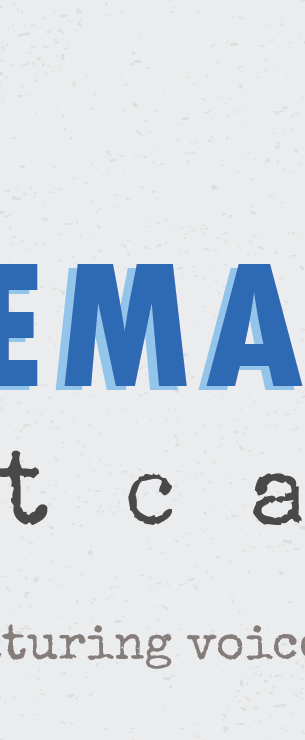 America is in an era of heightened distrust, symptomatic of accelerating political, social, and economic divides. The ramifications of this are often discussed in terms of political outcomes and growing polarization in our current election cycle, yet they carry equally significant consequences for people’s everyday economic well-being: Distrust makes it difficult to generate and share economic prosperity.
America is in an era of heightened distrust, symptomatic of accelerating political, social, and economic divides. The ramifications of this are often discussed in terms of political outcomes and growing polarization in our current election cycle, yet they carry equally significant consequences for people’s everyday economic well-being: Distrust makes it difficult to generate and share economic prosperity.
Trust is a fundamental ingredient of economic growth. When citizens, public officials, and business leaders trust each other, investments, financial markets, public expenditures, institutions, and firms are more effective and development-friendly. When community members trust institutions, the potential for establishing cooperative entrepreneurial relationships increases. The flip side is also true: When distrust runs rampant, communities, businesses, and workers suffer from poor working conditions, divisive policies, and diminished entrepreneurial activity.
So, how—in an era of unprecedented divides—can we improve trust between people, businesses, and institutions? Open Works and Coppin State University are testing a strategy in Baltimore to find out.
A makerspace rooted in trust and community benefit
In 2016, just one year after the unrest sparked by the death of Freddie Gray, we launched Open Works as a nonprofit makerspace in central Baltimore. It lies in the heart of a community with a long history of distrust in systems and institutions, based on a legacy of segregation, redlining, and unequal application of the law and fueled by persistent poverty, high crime, political corruption, breakdowns in city services, and continued police brutality.
Against this backdrop, we wanted to give the community a reason to trust institutions, and a chance to benefit economically and socially from the kinds of spaces they’d been excluded from. Just as important, we wanted to build an institution rooted in the assets, not just the challenges, of Baltimore—a space where anyone can come in and build nearly anything, and where economic growth and knowledge are widely accessible. Open Works provided a solution—although, admittedly, not the most obvious one.
Makerspaces—collaborative workspaces typically occupied by startups and small businesses—are not always associated with community trust. In fact, when makerspaces fail, they can cause vast collateral damage to businesses and communities. TechShop, the only commercial chain of makerspaces, went out of business in late 2017, taking lifetime memberships, accumulated safety certifications, and many businesses down with it. WeWork is mired in a very public devaluation crisis, just months after they announced a new Baltimore location. By failing to deliver on their promise of working with and benefiting communities, these business models have damaged trust in the notion of shared space.
Open Works is striving toward a very different outcome for makerspaces, one rooted in trust and community benefit. By offering a wide variety of flexible membership options (four different levels, including a day pass), affordable studio space, industrial fabrication equipment, and classes for all ages—offered with a conscious eye toward diversity and in partnership with trusted community institutions—Open Works is building equitable access where little existed before. We also support local entrepreneurship by offering physical space for small businesses, building in practical curriculum within the space, and supporting jobs for those who work at the space and use its studios.
We are committed to ensuring our results benefit the residents of Baltimore directly. Our 2019 economic impact study found that in the prior year, Open Works served a majority of users from Baltimore city (61%), created 114 jobs, and provided jobs almost exclusively to Baltimore residents (91%). That added up to $8 million in direct economic impact in the city and $9.9 million in direct economic impact in Maryland. Furthermore, we delivered educational, community services, and entrepreneurial support programming to 3,145 adults and 1,800 youth. By providing economic opportunity and inclusive programming, we are keeping our promise to Baltimore residents and making strides in restoring their trust in institutions.
Transcending makerspace boundaries to connect with the broader region
Open Works has a broader vision, too. Promoting widespread trust and economic benefit means looking outside the walls of our makerspace—not only into the Baltimore community, but to the broader region.
In late 2016, Open Works partnered with Coppin State University for the first collaboration in the country between a public historically Black college or university (HBCU) and a community-embedded makerspace. Our goal was to facilitate faculty and student exchange, research, and engagement. We soon realized that such partnerships could be expanded to other institutions across the region.
Adjacent rural areas are facing similar socioeconomic challenges as Baltimore, including the opioid crisis, challenged educational systems, a shrinking industrial base, and other drivers of economic distress. These places can undoubtedly benefit from the same services, access, and programming we provide to urban residents.
To this end, we are building regional relationships with makerspaces and academic institutions in surrounding rural areas, with the larger goal of forming urban-rural collaboratives to address shared place-based problems. One effort is Coppin State’s relationship with Bluefield State College (an HBCU in southern West Virginia), which is shaping Bluefield’s plans for a makerspace in their own area. Another is our engagement with Western Maryland Works, a makerspace outside of Cumberland, which provides us an opportunity to gather, share tools, and brainstorm solutions to common problems.
Through these partnerships, we are not only offering a space rooted in the distinct local assets and challenges of Baltimore, but also one that can speak to the broader regional community and provide solutions to problems that transcend geographic boundaries.
Looking forward: Developing an instrument to assess institutional trust
Although we’ve made progress in fostering a sense of trust and shared economic destiny within our makerspace and broader community, we recognize that our work cannot stop there. There is always room for improvement, and a need to stay accountable to our community, users, and businesses.
For this reason, we are developing an instrument to assess trust between makerspace members, staff, management, and community partners. The tool allows participants to answer questions related to cultural composition, cultural intelligence, and transparency as it pertains to their experience in the makerspace. Ultimately, results will be used to measure the health of collaborations, and to develop a toolkit to inform our programs and offerings moving forward.
Finally, we are expanding our mission to advance the four following goals across all of our programming and services:
- Provide a diverse, inclusive, and equitable physical space for the community.
- Establish robust networks across geographic, social, cultural, and economic divides built on common entrepreneurial and economic aspirations.
- Create a climate of shared vulnerabilities and transparency to promote trust.
- Balance quantifiable economic impact with significant qualitative social impact.
While there is no easy fix to repairing decades of institutional distrust and harm, our efforts shed light on some strategies that we, and other makerspaces, can test to get us there. And with the outcomes to prove it, we hope to show—one step at a time—the role that inclusive spaces can play in easing socioeconomic divides, connecting communities, and spreading prosperity to more people and places.
The Brookings Institution is committed to quality, independence, and impact.
We are supported by a diverse array of funders. In line with our values and policies, each Brookings publication represents the sole views of its author(s).
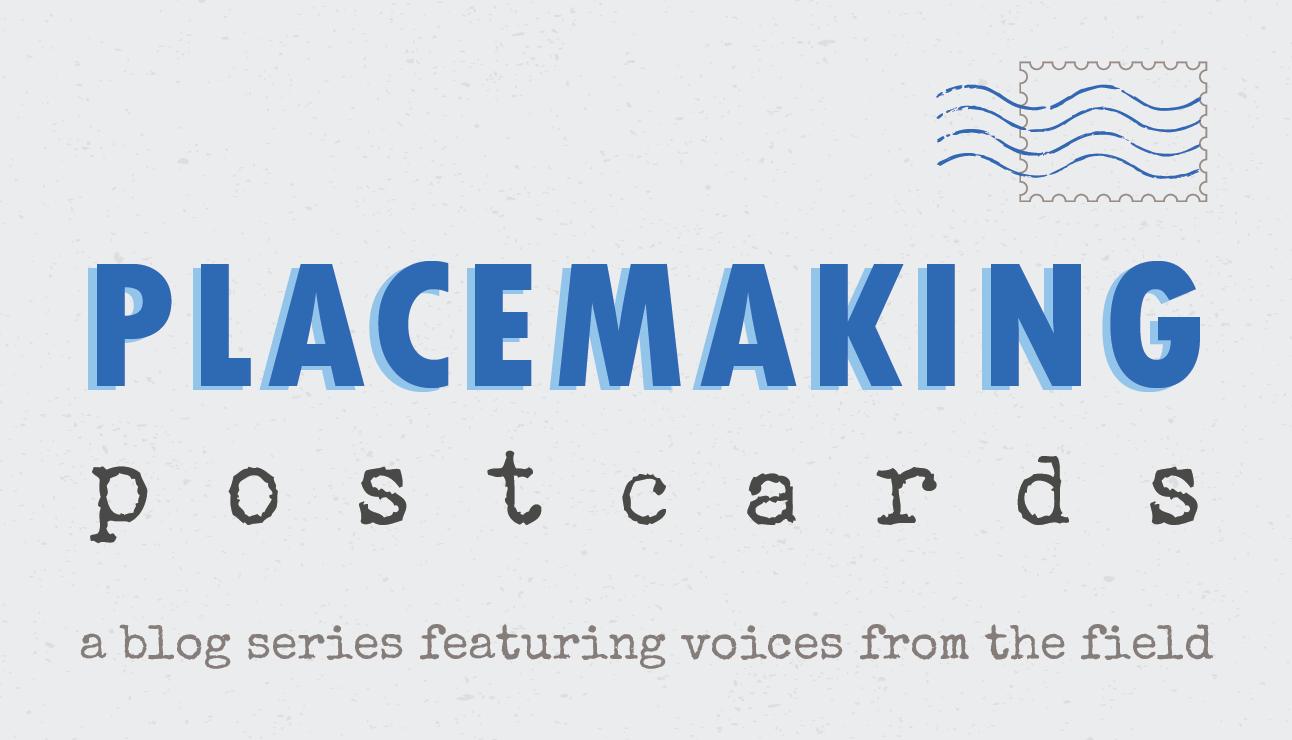
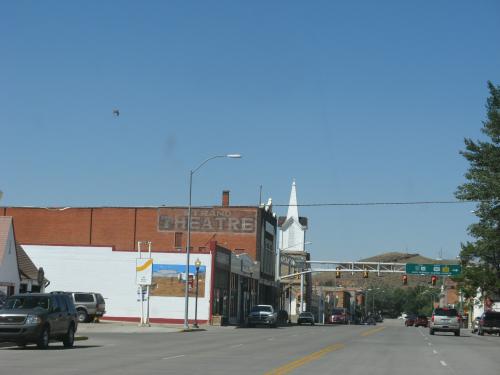
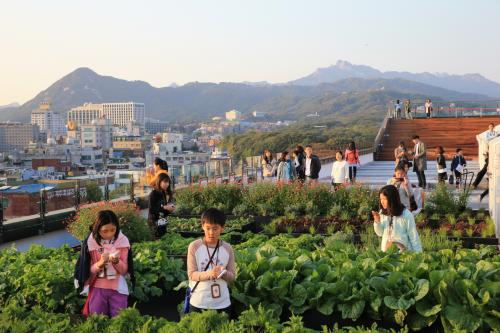
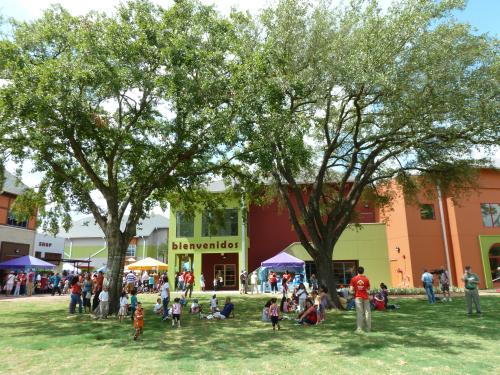
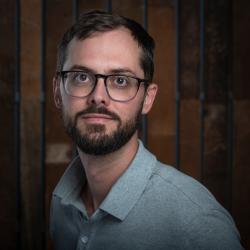
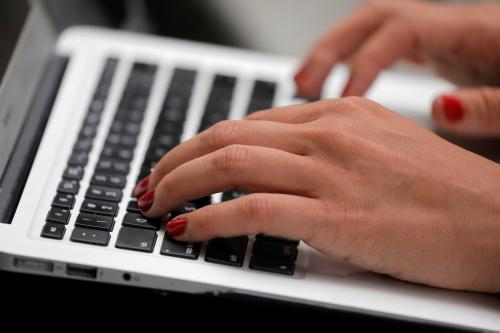
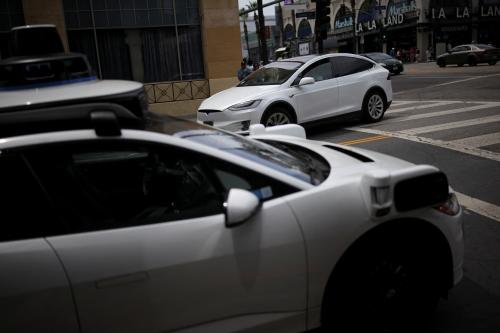

Commentary
How a Baltimore makerspace is encouraging trust between local residents, businesses, and institutions
December 10, 2019